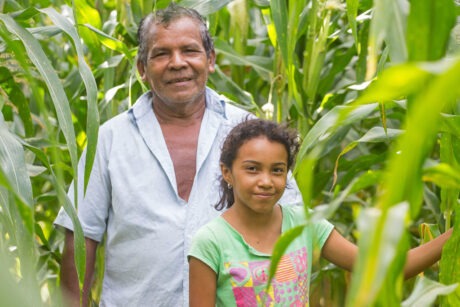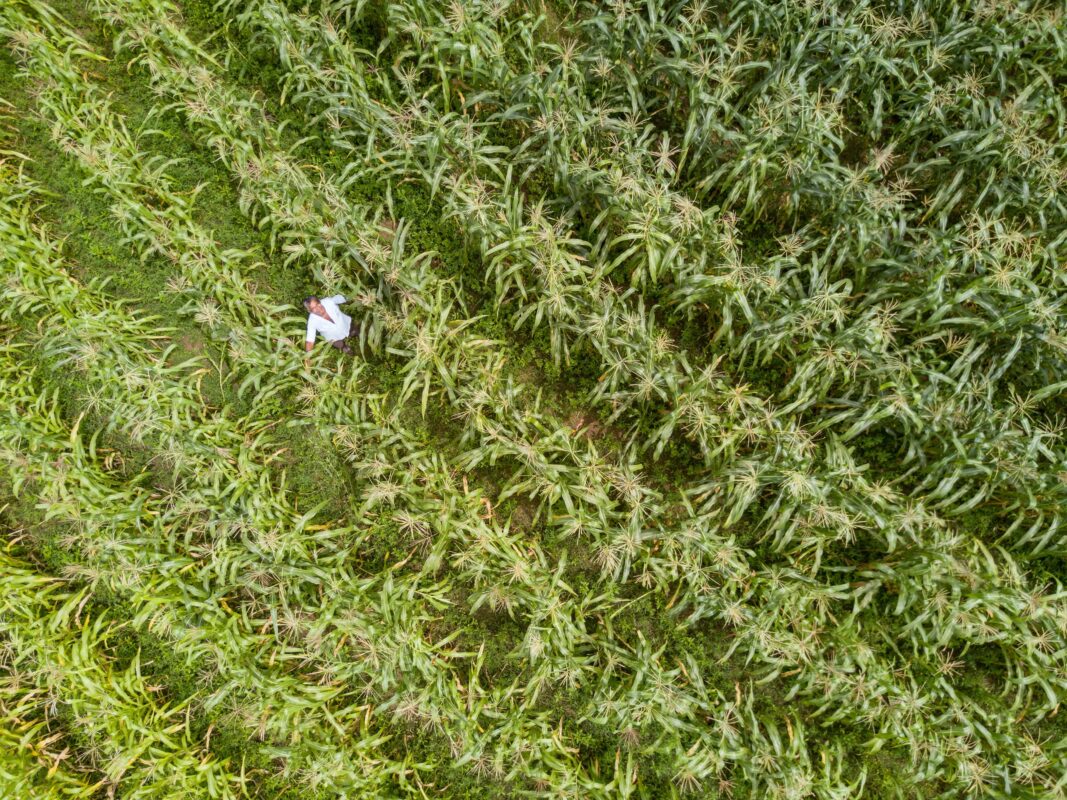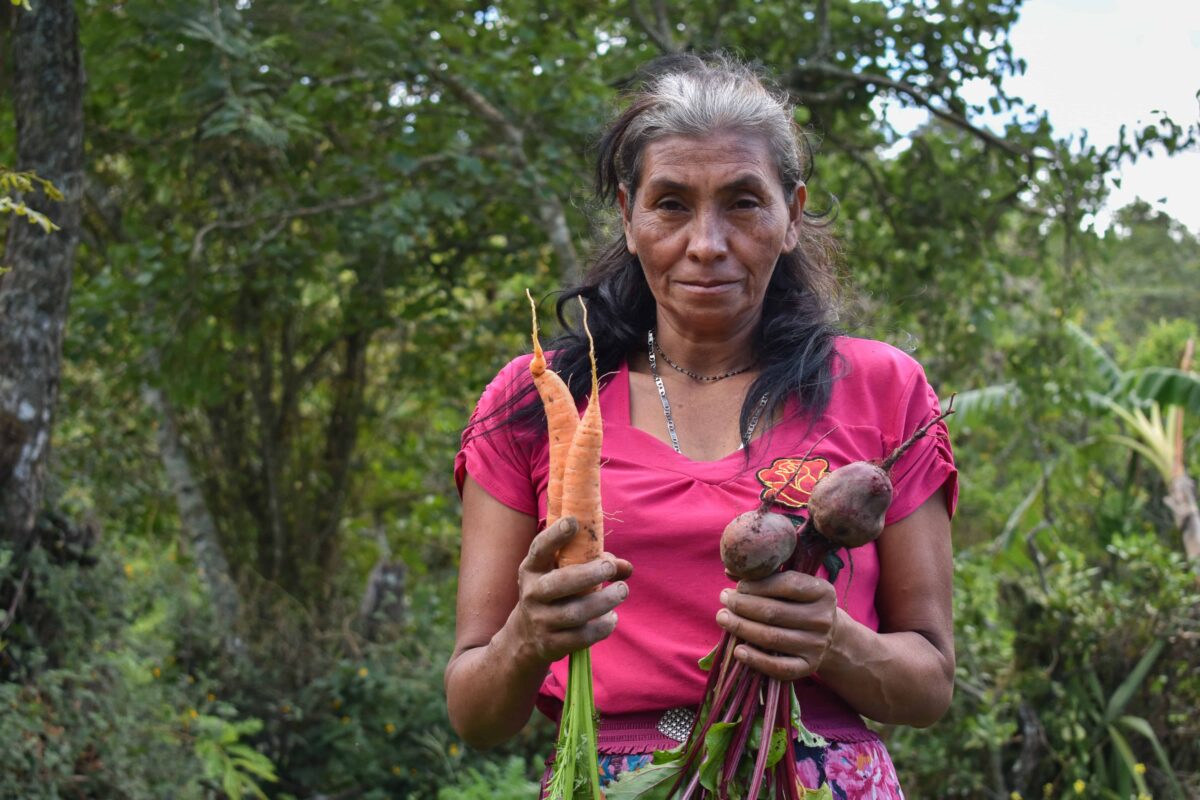El Paraiso, HondurasUn groupe de coureurs se dirige vers la communauté éloignée de Navijupe, Leurs chevaux et mules naviguant lentement sur les routes gravement endommagées par les pluies extrêmes dans cette région du Honduras. Il leur faut environ deux heures pour atteindre leur destination, qui abrite certains 1,400 résidents.
Ces cavaliers, ou «Jinetes» en espagnol, faire le voyage de San Lucas, Paradis, à la ville isolée dans le but d'améliorer la santé des familles confrontées à une mauvaise assurance ménage et à la malnutrition. Selon le Banque mondiale, 58 Pourcentage d'enfants de moins que l'âge 5 Dans la région, souffrez de malnutrition chronique.
Les chemises jaune vif des Jinetes les identifient comme des promoteurs nutritionnels travaillant avec un projet de cinq ans dans le sud du Honduras appelé The Dry Corridor Alliance - Prosasur, qui est mis en œuvre par Associés créatifs internationaux En tant que partenaire de INVESTIR-Honduras.
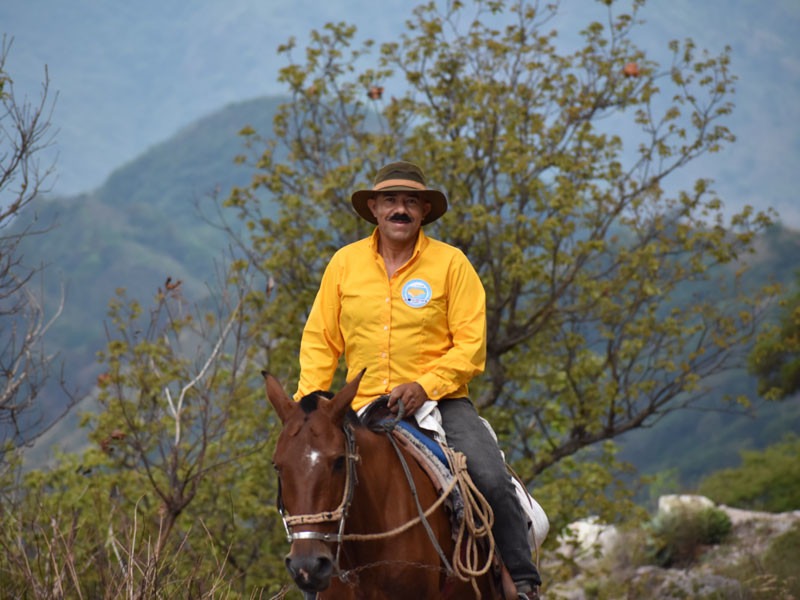
Le projet vise à atteindre 6,000 Les ménages pauvres pauvres et extrêmes du couloir sec du Honduras, ainsi nommé pour les longues périodes de sécheresse qui suivent les fortes pluies chaque année. Travailler dans ces zones rurales exige souvent, et dans certains cas, fait des voyages en bateau ou des randonnées à pied.
Le voyage à Navijupe prévoit un mode de transport différent.
«Navijupe est une communauté particulièrement isolée, Et nous avons dû faire preuve de créativité,»Dit le chef du parti Carlos Ruiz. «Mais quand nous avons réalisé la gravité de la situation de santé là-bas, Nous savions que c'était une communauté qui avait besoin de soutien, en particulier les jeunes enfants pour lesquels une mauvaise nutrition peut avoir des conséquences à vie. C’est pour ces raisons humaines que nous nous engageons à relever tous les défis. »
Changements au sein des ménages pour la santé communautaire
Dry Corridor Alliance – PROSASUR travaillera avec les familles, des dirigeants communautaires et des volontaires locaux pour améliorer la sécurité alimentaire et la nutrition à Navijupe, où la plupart des ménages vivent d'un revenu de $1 par jour. Le projet promouvra également l'éducation à la santé et à la nutrition., et les familles les plus nécessiteuses recevront une assistance dans les projets d'approvisionnement en eau et d'assainissement des ménages., comme remplacer les sols en terre battue par du béton ou améliorer les latrines.
Le technicien du projet Luis González dit pour l'instant, les jinetes commencent par familiariser la communauté avec le projet et identifier les ménages qui ont le plus besoin de soutien, donner la priorité à ceux qui ont des enfants de moins de 2 ans ou femmes enceintes. Mais l'équipe locale voit déjà des opportunités pour aider les familles à diversifier leur alimentation et à apporter de petits changements qui pourraient avoir un impact important..
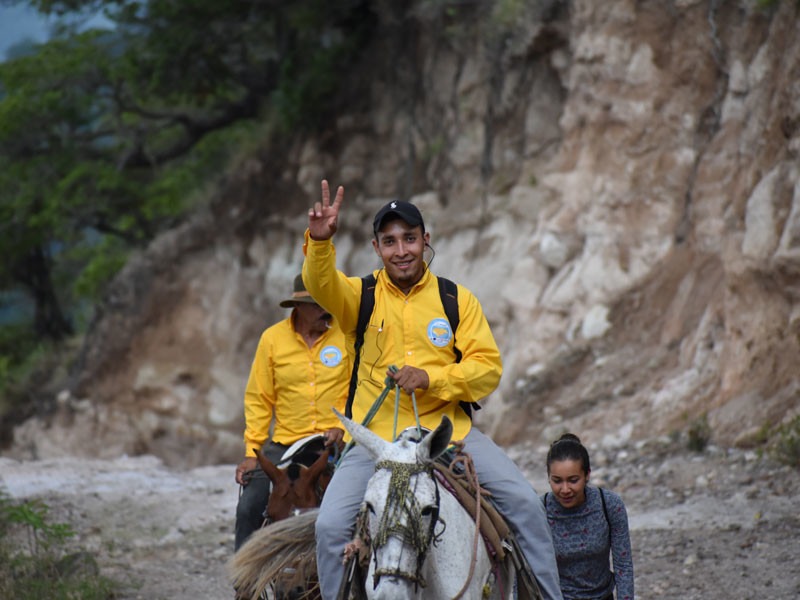
«Parmi ses premières actions, l'équipe créera des plans de sécurité alimentaire et nutritionnelle dans divers ménages," dit-il. "Ces plans pourraient inclure l'élevage de poules pour leurs œufs et la fourniture d'une assistance technique pour planter des jardins familiaux avec des carottes., betteraves et concombres.
Le projet s'est également associé à l'initiative gouvernementale pour l'emploi des jeunes. Jeune Chamba (Travail de jeunesse), qui vise à offrir aux jeunes leur première expérience professionnelle. Les jeunes soutiendront le travail du projet à Navijupe pendant cinq mois, y compris l'administration de sondages diagnostiques et l'établissement de parcelles de terrain démonstratifs pour la plantation.
«Grâce à la gestion efficace des colis, Il est possible d'améliorer les rendements des cultures et le revenu des ménages, réaliser un changement positif dans la qualité de vie de ces familles,»Explique l'ingénieur agricole et le composant de projet en tête d'Edgardo Varela. «Ces actions combinées à des mesures de santé et de nutrition ont un impact sur les vies de manière durable pour de nombreux enfants mal nourri dans le couloir sec.»
